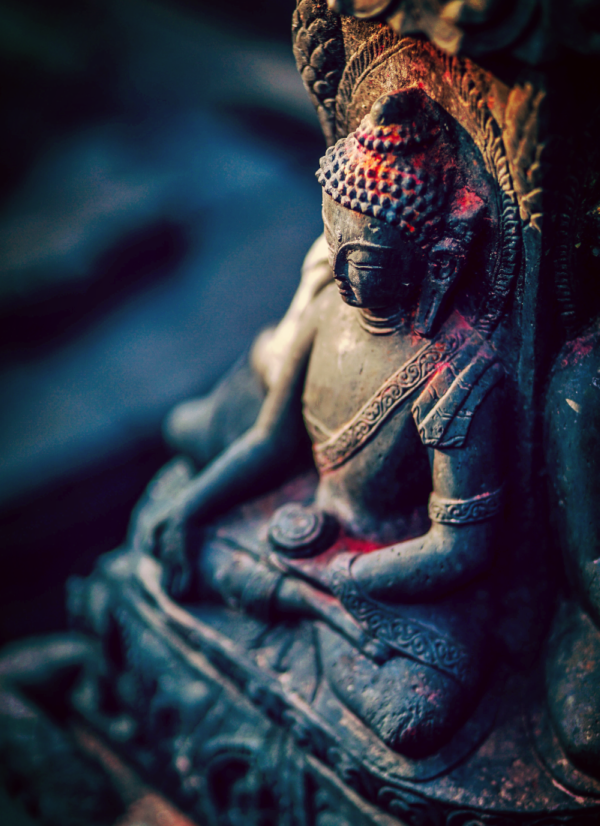
Past, future, present. Which one do you live in? If you go through life thinking about the past or anxious about what is to come in the future, then you cannot enjoy the present. In order to truly live, we need to rid ourselves of regrets of the past and of worries about the future. Only in this way can we fully experience and enjoy each one of life's moments. We need to be present in the here and now. We have to be mindful of it.
Mindfulness is the new favourite buzzword of health gurus everywhere. But mindfulness is not a fad. It is a way of life. It brings peace to the chaos of thoughts and feelings. It can teach us how to deal better with stress and anxiety. But it does not come by itself. We have to be mindful of mindfulness.
What is mindfulness?
Dating back to ancient times (its roots lie in the Eastern philosophies of Buddhism and Taoism) the practice of mindfulness tells us to be aware of what is happening around us. This is no less relevant today. We are facing emotional struggles on a daily basis. But we can learn to deal with them better and not to let them take over our lives.
Mindfulness based stress reduction (MBSR) is one of the ways to get out of the emotional rollercoaster. It is defined as “paying attention on purpose, in the present moment, and non-judgmentally.” Maintaining a momentary awareness of our thoughts, feelings, bodily sensations and the surrounding environment – all of that without internal criticism. In essence, mindfulness is the practice of intentionally being aware of the presence; of observing each moment. This is important. For the journeys into the past and the stays in the future can be overwhelming. We often encounter thoughts and images that make us angry or sad, cause anxiety and colour the present.
Mindfulness teaches us to perceive what is, to accept it, and not to judge. It shows us how to respond better to negative emotional states such as anxiety, stress, anger and regret. Instead of letting them run free with us, we can learn to interrupt habits, such as getting lost in our thoughts and rumination. It is exactly these thoughts – usually focusing on the future or on past events, which can add stress and anxiety to the pressures of day-to-day life.
One thing has to be said, mindfulness can only work under one condition: if it is prescribed neck and crop. Trying to be mindful one time is not going to defeat controlling thoughts and feelings. A consistent mindfulness practice is necessary to better understand our mind, its activity and the thought processes that shape our lives. By practicing mindfulness, we can eventually learn to recognise and interrupt and suppress negative, unhelpful processes in our mind.
By being mindful, we are taking active control of our thoughts and emotions rather than being driven by them. Consequently, we enable ourselves to cultivate states of positive mental and physical wellbeing. And not only does mindfulness provide us with emotional balance and stability but it also positively supports curing various mental ailments such as depression and addiction as well as bodily aches like high blood pressure.

Everyday mindfulness
You don’t have to attend yoga classes or practice meditation to be mindful. Mindfulness is a state of mind. It can and should be practiced everywhere – be it at the dinner table or at the office. Consciously observe your thoughts and feelings, and be aware of your situation and surroundings. Try to view arising feelings from a distance, without judgement. Detach erupting emotions from the feelings as you observe them. If you find yourself passing judgment, simply observe this judgment and let it go. Mindfulness is emotionally non-reactive. We need to make ourselves aware that thoughts are just that, thoughts. They come and they go. If we let our thoughts and emotions reign over us, we are giving them too much power.
Mindfulness shows us that it is the attachment to certain thoughts and feelings that can cause distress. Ruminating on things that we cannot solve by thinking about them over and over again. Without solution. By practicing mindfulness, noticing our thoughts and simply letting them go as they came, we can protect ourselves against the potentially negative effects of holding on to these thoughts and the potential stresses and anxiety that they may bring.
Mindfulness is a great stepping stone. It gives us the distance to see things clearly, to decide freely and to say goodbye to automatic processes in our mind. Through continuous practice, we can change unhealthy patterns in the brain. From then on, life can be perceived in a great depth of experience – the chain of momentary moments. Our life becomes alive because we are in contact with ourselves and our true feelings. And because we are connected to what we are doing. Mindfulness also means insight. It opens up the view on ourselves and our lives. Do you mind?

Cool post. Not easy to remember to take the time to just stop, breathe, think and take it all in.
Downvoting a post can decrease pending rewards and make it less visible. Common reasons:
Submit
we can make it easy actually ... it merely requires some form of alarm or mindfulness bell app that alerts us at certain moments during the day, to remind us that we can take a moment to check in with ourselves, even if it is only a few seconds <3
Downvoting a post can decrease pending rewards and make it less visible. Common reasons:
Submit